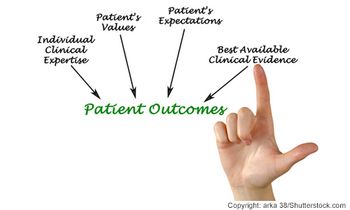
Like Y2K, Don’t Believe the Hype over ICD-10
By: Mark Birmingham, DPM The ICD-10 transition was a lot like the Y2K, lots of hype and a few headaches. Preparation did one practice well.
I remember being in a Chicago apartment on a cold New Year’s Eve night counting down the seconds until 1999 became the year 2000. I was young enough to have a cavalier mindset about the party happening around me but old enough to have this lingering thought that the world was going to end with all the hype that surrounded ‘Y2K.’
Spoiler alert: Life went on.
Part of me would like to believe that much of the hype building for the impending change to ICD-10 is exactly that: hype. That said, our private practice did quite of few things in preparation for the change set for 12:01am on Oct. 1st.
The grand majority of the preparation involved updating our EHR software. We have built-in ICD-9 to ICD-10 conversion windows that run you through the algorithm to get you to your new diagnosis code. This has shown me that I won’t be spending hours scouring through virtual (or real) pages of text to find something that won’t get kicked out by the insurance companies.
Before Oct. 1, we had already been coding with ICD-10 codes for all lab work that was ordered. This is mainly for recurring lab orders that stayed open beyond the Oct. 1 deadline and for those patients that may not get their lab work done in a timely manner as requested. This is primarily to save the patients from having to pay the full cost of the lab work, should the insurance company deny the coverage due to ‘improper coding.’
Before Oct. 1, we had been asked to code a handful of charts on a weekly basis for the prior 8-12 weeks with ICD-10 codes. This got us used to the fact that there are more factors involved when finding the correct diagnostic code (i.e., laterality, initial vs. subsequent visit, manner of injury, due to underlying medical disease, etc.). We found that it involves revving up the mouse buttons for more clicks within more new templates for many more diagnosis codes.
Another helpful tool was hiring a consulting firm to go over each practitioner’s 10 most common ICD-9 codes, converting them to ICD-10 codes, and then going over an audit of ‘a few’ charts to determine whether or not our charting supported the claim that this diagnosis was accurate. It was an excellent prep for us to change our thought that in the near future we are going to be reimbursed on how complex and complete our care is for each patient. Personally, it gave me a better understanding on what has been labeled ‘value based care’.
Like, post Jan. 1, 2000, the healthcare system in the U.S. did not implode on Oct. 1, 2015. For many, delays in payment are still likely to come. There will likely be many grumblings for the next six months. There will likely be many that actually embrace it and move on. I look forward to looking back and wondering what all the hype was about on Oct. 1, 2015.
Newsletter
Optimize your practice with the Physicians Practice newsletter, offering management pearls, leadership tips, and business strategies tailored for practice administrators and physicians of any specialty.









